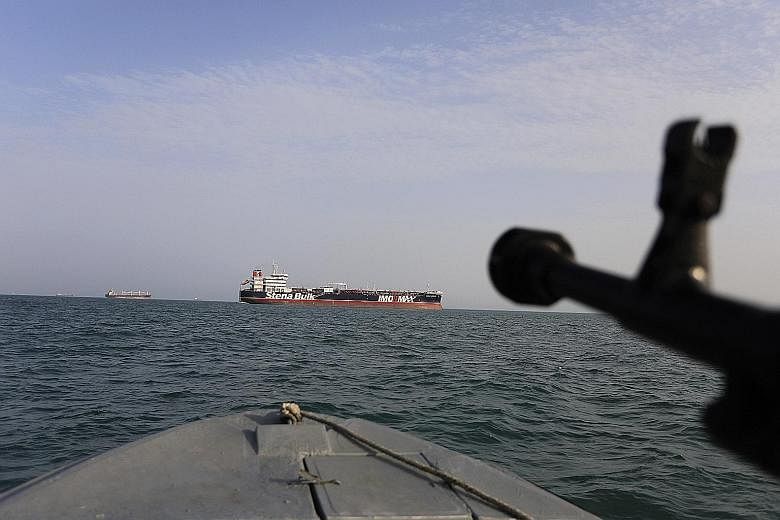Singapore, like many other countries, is deeply concerned about the escalating tensions in the Strait of Hormuz, and hopes that all parties will act with pragmatism to resolve matters amicably, Senior Minister of State for Trade and Industry Koh Poh Koon said yesterday.
The overriding priority must be to defuse tensions, and Singapore urges all parties to exercise restraint and avoid further unilateral actions that may undermine the freedom and security of commercial vessels using the strait, he said.
The Republic also encourages parties to return to the negotiating table, he added, saying that any long-term solution must be rules-based and take into account the interests of all relevant parties.
Dr Koh was at a conference on United States-Iran relations organised by the National University of Singapore's Middle East Institute.
For Singapore, the issue at hand is what the dispute "portends for other international waterways and international order generally".
"Singapore has a strong interest in ensuring that sea lines of communication remain open, free and secure for peaceful and unhindered travel by commercial vessels," Dr Koh said.
Noting that Singapore's standing today as a global maritime hub would not have been possible without continued access to secure and open trade routes - in particular, along the Strait of Malacca and the South China Sea - Dr Koh stressed that freedom of navigation is of "fundamental interest" to the Republic and the world economy.
The current tensions in the Gulf were the focus of discussions by experts and former top diplomats at the conference, titled The US And Iran: On A Collision Course?
Speakers included Mr Richard Armitage, former US deputy secretary of state; Dr Kazem Sajjadpour, president of the Institute for Political and International Studies and Iran's former ambassador to the United Nations in Geneva; and Mr M.J. Akbar, India's former minister of state for external affairs.
US-Iran relations have become increasingly tense following the Trump administration's withdrawal last year from the Joint Comprehensive Plan of Action (JCPOA) - also called the Iran nuclear deal - and its efforts to re-impose and step up sanctions following the move.
A number of maritime incidents - including attacks on oil tankers and Iran's seizure of a British-flagged ship - have occurred in or near the Strait of Hormuz in recent months.
Dr Koh said the strait is flanked by the biggest oil producers in the Middle East, and remains one of the busiest and most important waterways for the global oil trade.
"Even without outright conflict, prolonged tensions and instability in the Hormuz Strait will have a detrimental impact on the global oil supply and global economy."
Asia would be hit the hardest by any actual disruption to oil transiting through the strait, as 76 per cent of crude oil and condensates passing through it are bound for Asian markets, he added.
Turning to the JCPOA, Dr Koh said that while it was not perfect and did not erase mistrust or resolve longstanding issues, the deal nevertheless helped to manage differences and de-escalate tensions.
"It was a delicately balanced accord which bridged the interests of all parties and, in the long run, may have served to build confidence between the parties directly involved," he said.
The JCPOA was signed in 2015 between Iran, the UN Security Council's five permanent members - Britain, China, France, Russia and the US - as well as Germany and the European Union.
Dr Koh said the fundamental principle that international pacts should be honoured once signed is a key interest for small states such as Singapore.
"This principle is the foundation of certainty and stability in the international order," he said.


